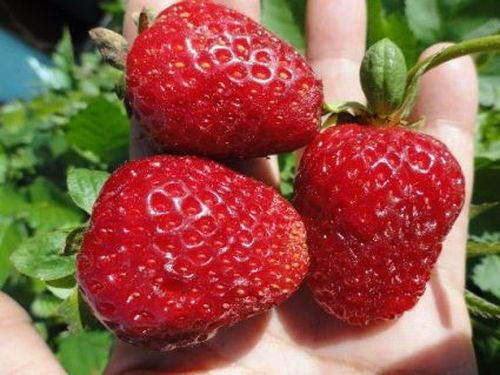Health Benefits of Berries
Blackberry Health Benefits:
- Antioxidant: being rich in antioxidants, blackberries help the body in fighting free radicals and thus, avoid various types of cancer and provide longevity.
- Antiseptic activity: the high tannin content, and the resultant antiseptic properties, of blackberries makes them good for tightening tissues as well as treating minor bleeding, their anti-bacterial properties and can even help cleanse blood.
- Diarrhea: consumption of blackberry has been found to be beneficial for those suffering from diarrhea and intestinal inflammation.
- Infections: mild infections, like sore throats and mouth irritations, can be treated with the help of blackberries.
- Hemorrhoid: blackberries have been used to alleviate hemorrhoids also.
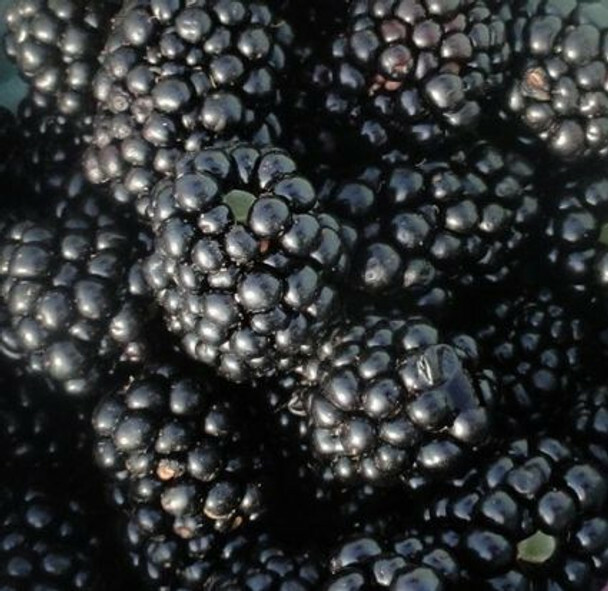
Blueberry Health Benefits:
From research labs all across the country and the world, there is growing evidence that blueberries are an important part of a healthy diet.
- Blueberries and Antioxidant Activity
Antioxidants are thought to help protect the body against the damaging effects of free radicals and the chronic diseases associated with the aging process. Fresh fruits, including blueberries, and vegetables contain many of these naturally occurring antioxidants such as Vitamins C and E.
Blueberries contain 14 mg of Vitamin C and 0.8 mg Vitamin E per 1 cup of blueberries. In addition, blueberries contain and that can also act as antioxidants. Blueberries are among the fruits with the highest antioxidant activity. Using a test called ORAC (Oxygen Radical Absorbance Capacity), researchers have shown that a serving of fresh blueberries provides more antioxidant activity than many other fresh fruits and vegetables.
- Blueberries and Aging
Laboratory in the USDA, Human Nutrition Research Center (HNRC), fed blueberry extractions—the equivalent of a human eating one cup of blueberries a day—to mice and then ran them through a series of motor skills tests.
They found out that the blueberry-fed mice performed better than their control group counterparts in motor behavioral learning and memory, and he noticed an increase in exploratory behavior. When the scientists examined their brains, they found a marked decrease in oxidative stress in two regions of the brain and better retention of signal-transmitting neurons compared with the control mice.
The compound that appears responsible for this neuron protection, anthocyanin, also gives blueberries their color and might be the key component of the blueberry’s antioxidant and anti-inflammatory properties. Blueberries, along with other colorful fruits and vegetables, test high in their ability to subdue free radicals. These free radicals, which can damage cell membranes and DNA through a process known as oxidative stress, are blamed for many of the dysfunctions and diseases associated with aging.
These findings could become increasingly important as the U.S. population ages. It is projected that by 2050, more than 30% of Americans will be over 65 and will have the decreased cognitive and motor function that accompanies advanced age. Joseph is currently testing the effects of blueberries on humans. Preliminary results show that people who ate a cup of blueberries a day have performed 5–6% better on motor skills tests than the control group.
- Blueberries and Nutrition
Though blueberries themselves are not a cure-all, they contain a number of substances that are thought to have health benefits. These substances include, but are not limited to fructose, fiber, vitamins and antioxidants. Antioxidants thus far, seem to have the most conclusive role in the prevention/ delaying of such diseases as cancer, heart disease and the aging process however, a limited number of studies, especially long term and on human beings, are not available at this time.
Blueberries are a source of vitamins, minerals, dietary fiber, phenolics, and flavonoids. They are very low in fat and sodium
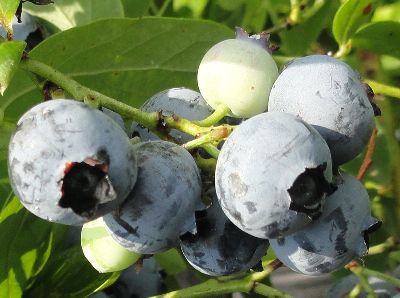
Honeyberry Health Benefits:
- Vitamins
One of its many advantages is the high content of vitamins that are found in the honeyberry varieties. Thus, the amount of ascorbic acid up to 170 mg per 100 g of berries, i.e., more than strawberries, raspberries, gooseberries, approaching black currant. In terms of P-active compounds (catechins, rutin, anthocyanins, leykoantotsiany etc. 2800mg per 100g of berries) Honeysuckle is second only to black chokeberry. Vitamins B1, B2, B9 found in much smaller quantities.
- Minerals
Honeyberries contain a rich set of macro-and micronutrients. They accumulate a lot of iron, calcium, and phosphorus. For magnesium, a component of nervous tissue, honeysuckle has no equal. In terms of sodium honeyberry retains leadership among wild berry bushes. It is rich in potassium and contains twice as much as black currants, raspberries, blackberries, and yields in these only lingonberries. Trace elements - catalysts of metabolic processes in living cells - are manganese, copper, aluminum, barium, silica, and iodine. .
- Glucose, fructose and organic acids
Honeyberries contain sugars that are dominated by glucose, fructose, and organic acids - malic and citric.
In ancient times honeyberries were considered a priceless gift in the (Taiga region) northern barren lands of the Artic, and in the treatment of many ailments by using different parts of the plant: flowers, leaves and branches.
Fruits are used in cardiovascular diseases, atherosclerosis, hypertension, gastritis, disorders of the gastrointestinal tract, they are particularly valuable in diseases of the liver and gall bladder, as an antipyretic and a diaphoretic for colds, and they are used for frequent nosebleeds.
Honeyberry juice is used as a health-improving drink for weakened immune systems, anemia, beriberi; it is used to treat ulcers and herpes. Honeyberries are also used to strengthen cell walls, anti-inflammatory, astringent and diuretic.
A mixture of flowers and leaves can be used to treat diseases of the mouth and throat as well as cure skin diseases and burns.
Infusions are used in the edema of different origin, in diseases of the kidneys and bladder.
Broth of branches and bark can be used to treat dropsy.
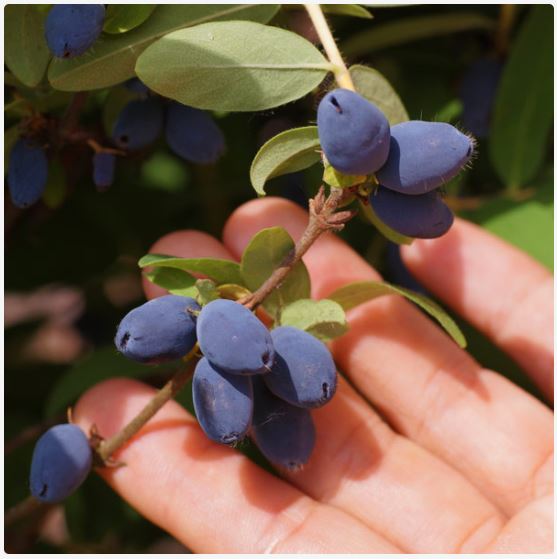
Raspberry Health Benefits:
Research findings by nutritionists from laboratories all round the world agree that there a lot of health benefits can be derived by eating raspberries. Don't go for raspberries which show signs of mold or mushy spots, but those which are ripe, firm, and colorful raspberries. They can be either fresh, canned or frozen. But take note. When frozen raspberries thaw, they may not be as firm as the fresh ones. They however remain sweet and delicious. To get the freshest raspberries, visit markets where farmers have stocked the berry, which has just been harvested. This offers the best berries to boost your health. Here are some of the health benefits to be enjoyed by anyone who eat raspberries in its many forms.
- Strengthened Immune System
Minerals such as Vitamin C are thought to help the body to develop strong connective tissues and an immune system able to ward off the attack of microorganisms. Raspberries like other berries such as blueberries, cranberries, and strawberries contain a lot of Vitamin C in its structure. Nutritionists have said that one cup of raspberries offer humans beings Vitamin C as well as potassium for 64 calories.
- Disease Prevention
Though raspberries themselves are not a cure-all berry, they contain a number of other substances that are thought to prevent many diseases. These substances include, but are not limited to, flavonoids and phytochemicals. Raspberries, along with berries such as blueberries, cranberries, and strawberries, also contain a substance thought to prevent bladder infections. The substance does this by preventing bacteria from adhering to the cells, which line the walls of the urinary tract.
- Healthy Vision
Raspberries are also thought to contain compounds that are important towards having a healthy vision. The substance that appears to be responsible for this is called lutein.
Researchers have identified a lot of compounds in berries such as raspberries, blueberries, cranberries, blackberries, and strawberries, which may help in the reduction of the risk of being affected by several types of cancers and heart diseases. Though a definitive study hasn't been conducted on this, researchers counsel that a diet rich in berries can help to reduce or delay several types of cancers.
Raspberries have a pigment, which is thought to be responsible for their blue and red hue. The pigments are also believed to contain compounds which are the key components of the ability of raspberries to prevent the development of many types of diseases in humans.
Raspberry leaves have a healing action to sore mouths, sore throats ( soothing), nausea, aphtha, stomatitis, diabetes, diarrhea and dysentery.
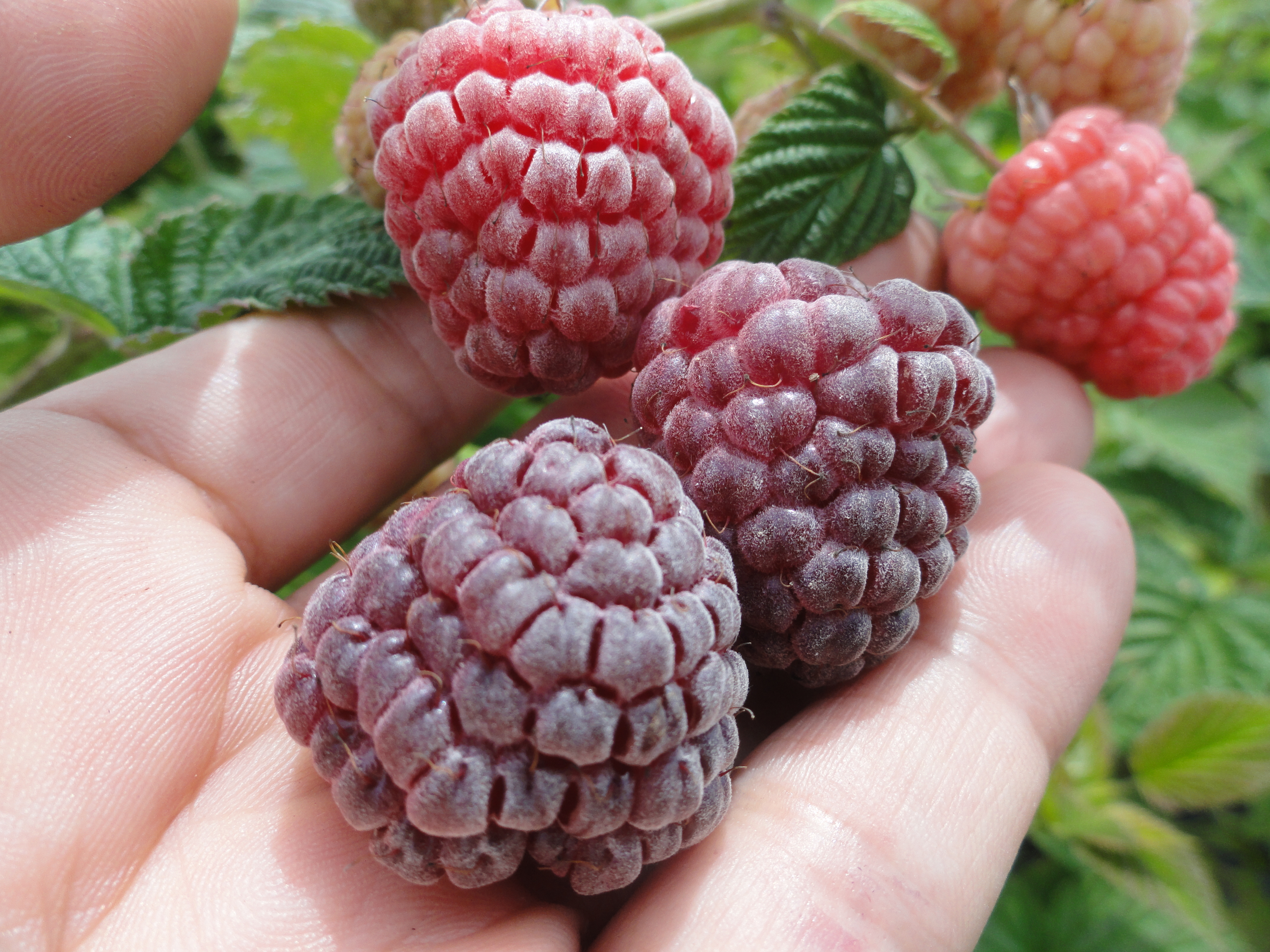
Strawberry Health Benefits
The vitamins, minerals, and antioxidants in strawberries can provide important health benefits. For example, strawberries are rich in vitamin C and polyphenols, which are antioxidant compounds that may help to prevent the development of some diseases.
In addition, strawberries can provide other health benefits related to:
- Insulin Sensitivity
The polyphenols in strawberries have been shown to improve insulin sensitivity in non-diabetic adults. Not only are strawberries low in sugar themselves, they may also help you metabolize other forms of glucose.
- Skin Protection
Strawberries have anti-inflammatory effects that may prevent skin damage when applied topically. In one small study, strawberry-based cosmetic treatments protected skin exposed to harmful Ultraviolet A (UVA)-radiation, especially in combination with Coenzyme Q10.
- Osteoarthritis Management
One small study showed the anti-inflammatory benefits of strawberries can also protect other parts of the body, including the joints. For people with osteoarthritis and knee pain, strawberries can help reduce pain and swelling and improve quality of life. The consumption of strawberries has been shown to significantly reduce constant, intermittent, and total pain for people with osteoarthritis.
- Disease Prevention
Strawberries contain a wide range of bioactive compounds that have shown protective effects against chronic diseases. Their antioxidant and anti-inflammatory effects can improve cognitive function and mental health. Some research suggests that incorporating strawberries, as well as other berries, into your diet can help prevent cardiovascular disease, cancer, Alzheimer's and other disorders.
- Nutrition
Strawberries are rich in vitamin C and other antioxidants, which help reduce the risk of serious health conditions like cancer, diabetes, stroke, and heart disease.
It’s also an excellent source of:
- Magnesium
- Phosphorous
- Calcium
- Potassium
- Folate
- Vitamin K
